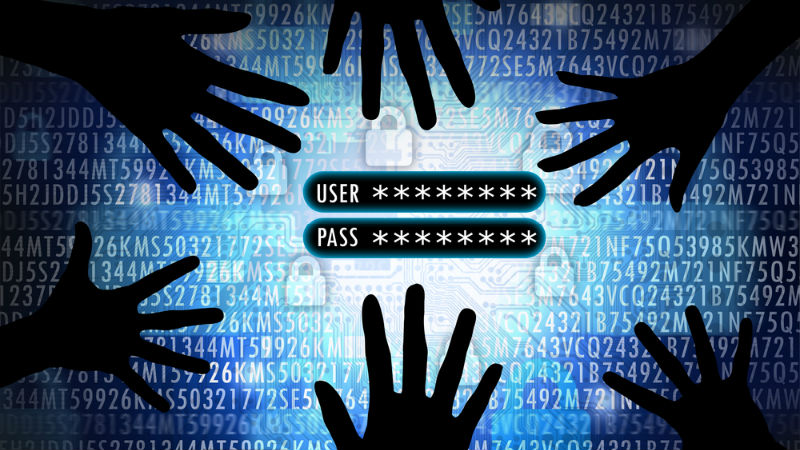Since the world wide web explosion in the mid-1990s, the risks of identity theft and fraud have increased considerably. While fears were voiced as online payment systems became more prominent, online stores appeared, and the internet grew in importance within the fabric of life and society; if anything, the risk has increased.
Who is at risk of ID theft? Are kids who grew up with the web more likely to be wise to the risks, or are silver surfers naturally more cynical and less trusting? And how can you tell if your ID is about to be stolen?
- We've rounded up the best secure drives to help keep your data safe on the go
- Protect your online privacy with one of the best VPN services
- These are the best anonymous browsers on the market
Some people are more at risk than others
Identity theft is a problem that shows no sign of going away. Throughout history, people claim to be someone they're not to gain a financial advantage. These days, it has become an industrialized form of fraud, with criminal gangs operating units dedicated to identity theft and the subsequent fraud (and, at times, extortion) that comes with it.
However, the risk of ID fraud isn't equal. It won't be stolen if you can keep a handle on your identity. Fraud cannot be committed in your name if it isn't stolen.
So, you need to avoid identity fraud. Sadly, some people are more prone to identity fraud than others. Here are five key signs that you're likely to be a target of ID theft.
1. You don't check credit card or bank statements
The letter box rattles, you pick up the envelope, but you don't open it to find out what's inside. After all, it's a bank or a credit card statement. You know what you bought, what bills were paid, and how much you spent on your credit card.
There's no need to check.
Except… if your credit card has been cloned, there is an excellent reason to check. After all, you wouldn't know about this fraud without checking your card statement. And you won't learn about someone opening a loan in your name and paying the monthly repayments from your bank account without reading your bank statement.

2. You use the same username and easy to remember password on every account
It's much easier to use the same username and password across all your accounts, right?
After all, passwords are tough to remember. So why complicate things and waste time with different passwords and PINs when you can use one?
One password for all your accounts makes it easy for someone who finds your password to access all of your data. Cloud accounts, email, and social media - can all be accessed by your single password. Banks and credit card accounts might require additional data, but if a scammer has your passwords for everything else, they have enough information to pose as you on the phone.
- These are the best password generators
3. You have never checked your credit report
Do you think your credit report is for special occasions like applying for loans and mortgages? Believe it's only available to banks and loan companies?
If you've never read your credit report, you won't be able to see how your data is collated. You won't know how the accounts are paid off, month by month, and what credit searches have been performed. Bought a new phone? The phone company will have to run a credit check. Have you paid off a loan? That will be listed here too.
Has your name been used to apply for credit by a stranger? You won't know if you haven't checked your credit report. It's time to sign up for Experian or similar services to access the report and check it monthly.

4. You happily click links in emails claiming to be from your bank
When someone messages you on SMS or email out of the blue asking you to check your login details are correct, you click the link, right? After all, you don't want to have to change that password if you can avoid it.
Online scammers aiming to steal identities have a clever way of keying into this urge to click. They send messages purporting to be from your bank, mortgage company, credit card company, or even PayPal, eBay, or Amazon. The email includes the appropriate logo and typeface to help convince you of its veracity.
In the email body is a request to check your account details by clicking a link and submitting your username and password. But, of course, it's a scam - the username and password don't confirm anything; they're recorded by a database and any other information on the fake website.
5. You share everything on social media
Have you heard of oversharing? It's when you tell the world about every detail of your life (e.g., on Facebook). Photos of food, thoughts on the bus, where you are, where you were, and who you're with.
It's information that identity thieves can use to create a profile of you. For example, they could use this to mug you, steal your phone and purse, grab the information they need, and pose as you to take a line of credit. Or they might use it to spot you out of the house, then break in and grab your banking information.
Social media is fun but sharing everything is dangerous. Be more discrete, share the good times, keep it to a close circle of friends, and be scant with the details of when and where. Disable "check-in" features, and keep your friends list compact.
- We've also picked out the best social media management tools
Counter your risky behaviours
Other tell-tale signs could be added to this list, such as carrying your social security (US) or National Insurance (UK) number in your wallet or failing to secure your bank statements where visitors can't see them.
But by now, you should recognize the dangers. Believing "they won't get me" is not enough to prevent identity theft. Instead, responsible behavior that appreciates the importance of your financial situation is required.
Having your ID stolen is a potentially life-changing event. It's certainly one that you should avoid. Fortunately, it's also one you can prevent simply by preventing key mistakes and learning new behaviors that secure your identity.
- Also check out our complete list of the best identity theft protection
Source: TechRadar